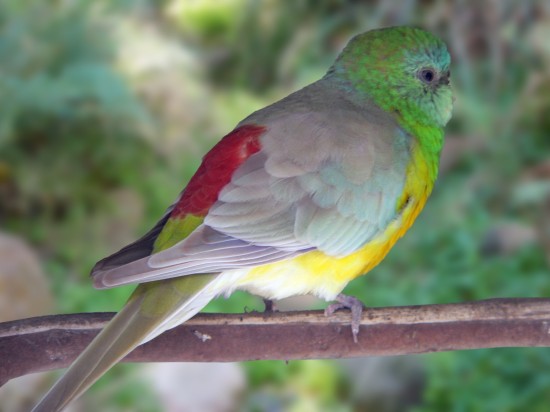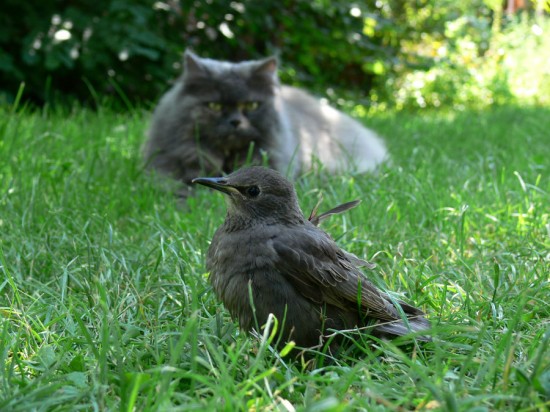
Be alert to the hidden health threat. Most internal parasites, commonly called worms, live in a cats intestines where they feed and reproduce. All kittens should be examined by a veterinarian for internal parasites. Your veterinarian can detect the presence of most worms by examining your kittens feces.
Some parasites, such as hookworms and roundworms, can be transmitted from the mother to her kittens before birth or during nursing. Hookworms are among the most dangerous of all internal parasites, especially in kittens who can be infected from their mother during nursing. Hookworms attach themselves to the intestinal wall and suck blood, causing severe anemia which can be fatal. Kittens with a heavy hookworm infection can die from blood loss within a few weeks. Their presence is less severe in older cats, but may lead to chronic anemia. Regular fecal examinations for the presence of hookworms minimizes the risk of infection.
Roundworms are a common parasite among young kittens. They are infected by way of the placenta during birth. After birth, kittens can become infected by larvae in the mothers milk. In the small intestine, roundworms compete with the kitten for nutrients, resulting in stunted growth and poor health. Roundworms often make a kitten look potbellied. Other signs include diarrhea, poor coat, listlessness and poor growth.
Whipworms are passed in the feces and are difficult to eliminate. Generalized symptoms include weight loss, nervousness, diarrhea with blood and mucus, and dehydration. Treatment with anti-whipworm medication must be repeated at regular intervals until the cat is completely cleared of whipworms.
Tapeworms can be contracted by a kittens or cats swallowing tapeworm-carrying fleas, or by eating an infested rodent or raw fish or meat. The most common symptom is a ravenous appetite with no weight gain and, possibly, weight loss. Tapeworms are treated by medicine prescribed by a veterinarian.
Coccidia is a common parasite of cats, especially kittens. Eggs passed in the feces of infected animals become infective to other animals within one to several days, depending upon the temperature. The most common symptoms include diarrhea, abdominal pain, dehydration, weight and appetite loss. However, coccidia may present no symptoms. Veterinary diagnosis is made by examining the feces. Several effective medications are available, but the general health of the cat and the function of its immune system appear to be very important in preventing and treating coccidia.
Giardia is one of the most common parasites infecting cats. Young cats are more likely to have severe infections. Infections can be acquired by direct contact with fecal matter containing the parasites as well as from contaminated food and water. Symptoms can be intermittent or continuous and include foul-smelling feces which may contain mucus, loss of appetite and weight loss. Your veterinarian must perform fecal examinations by procedures designed to reveal this type of parasite. Once the diagnosis is established, specific treatment is available.
 What Breed Of Terrier Is Right For You?
What Breed Of Ter
What Breed Of Terrier Is Right For You?
What Breed Of Ter
 Red Rumped Parrot
Red Rumped Parrot
Red Rumped Parrot
Red Rumped Parrot
 Chapel Hill Dog Boarding: Takes Utmost Care of the Dogs
Chapel Hill Dog Boarding: Takes Utmost Care of the Dogs
Chapel Hill Dog Boarding: Takes Utmost Care of the Dogs
Chapel Hill Dog Boarding: Takes Utmost Care of the Dogs
 Cat As Hunters
Cat As Hunters
Cat As Hunters
Cat As Hunters
 How To Decide If A Great Dane Is The Right Dog For You, And How To Pick The Right One
How To Decide If
How To Decide If A Great Dane Is The Right Dog For You, And How To Pick The Right One
How To Decide If
Copyright © 2005-2016 Pet Information All Rights Reserved
Contact us: www162date@outlook.com